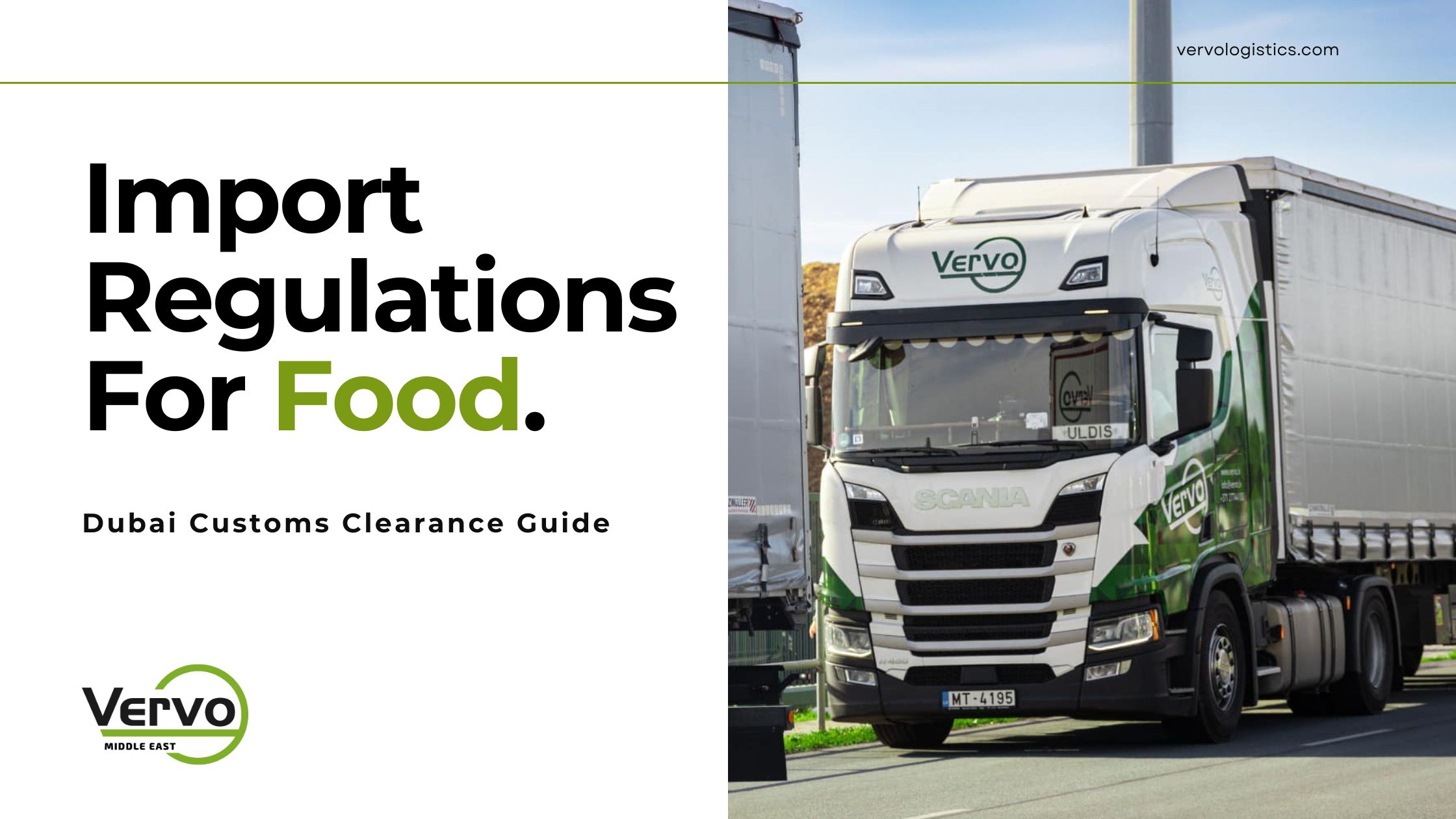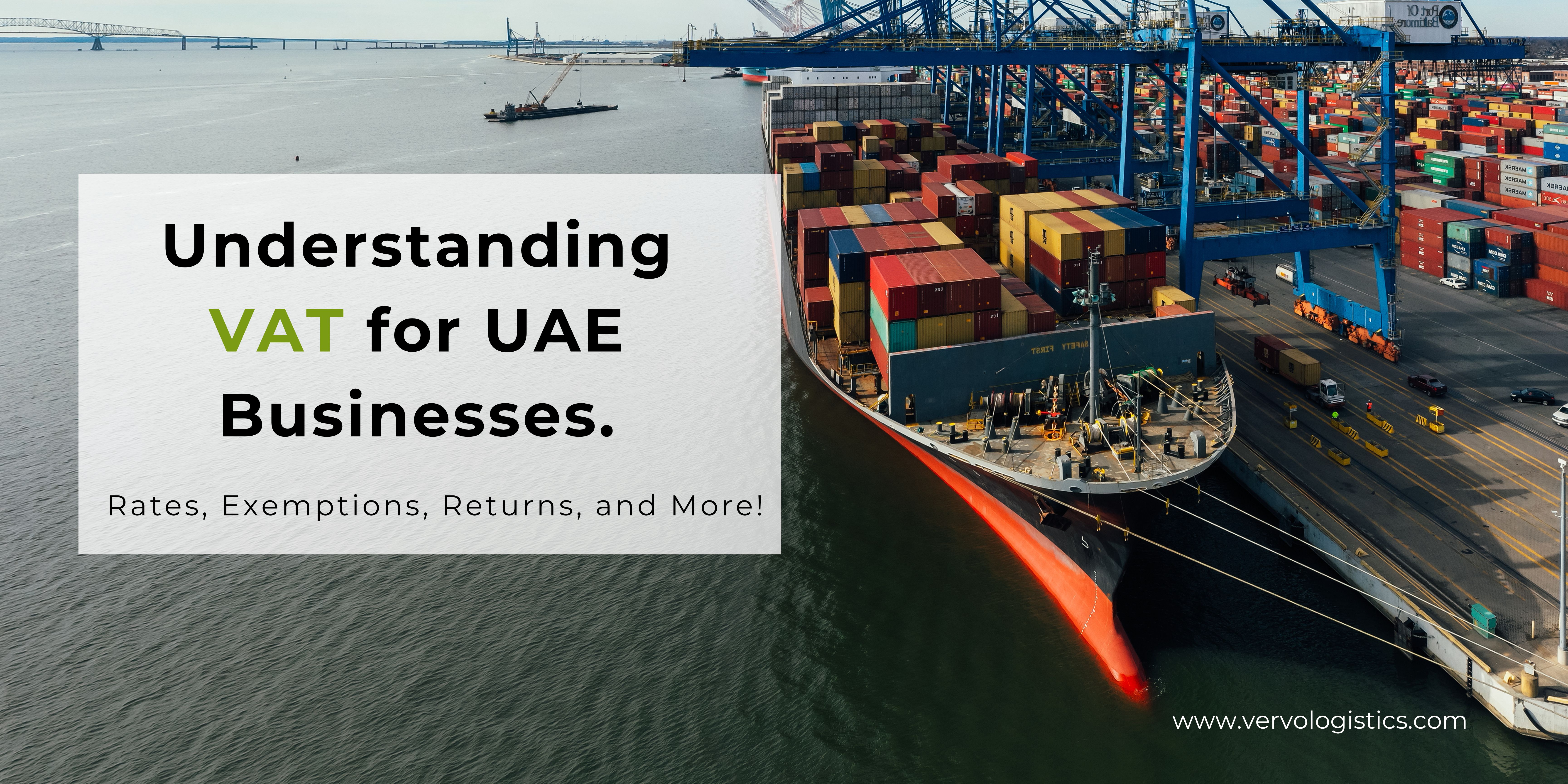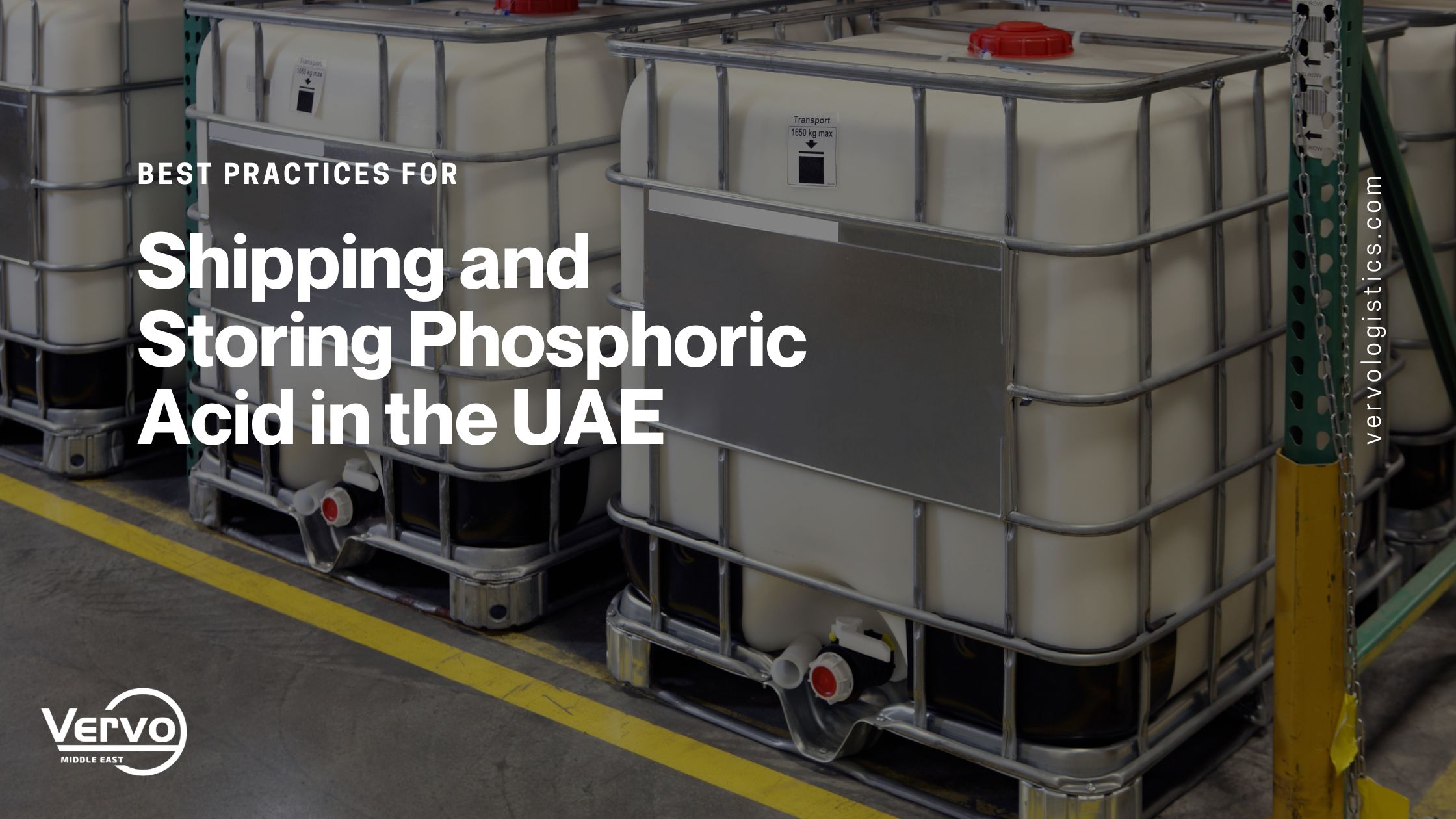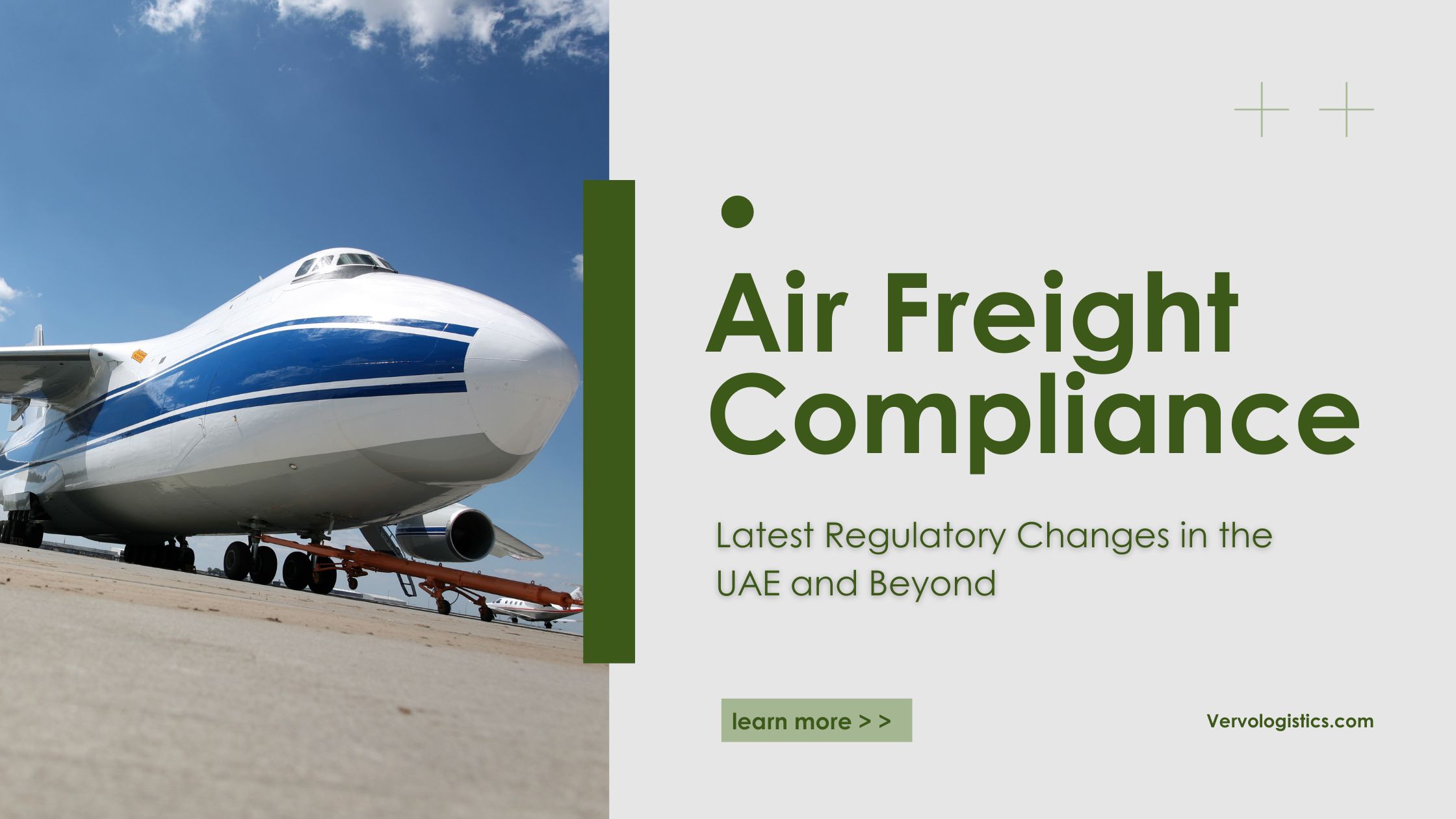Market research indicates bright prospects for the food industry in the United Arab Emirates in the near future. Euromonitor projects robust growth for packaged food retail sales, forecasting that the packaged food sales expected to hit 9.4 billion USD in 4 years, representing 29.1% growth from the 2024 projected figure of 7.3 billion USD. Meanwhile, the nation's foodservice sector is estimated to achieve a value of nearly 20 billion USD by the end of this year. The UAE maintains robust import requirements to ensure food safety and compliance with religious norms.
Here Vervo Middle East's team covers the essential regulations that affect the importation of food products into the UAE: mandatory registration steps, labeling requirements, banned substances, necessary documentation, and common reasons for the rejection of food items at UAE ports.
Mandatory Registration Steps
The Dubai Municipality requires all food items imported into Dubai to be registered in their Food Import and Re-export System (FIRS) prior to importation. There is a two-step registration process that must be completed online by the UAE company that will be importing the food products:
- Food Item Registration: Every distinct food product must be registered in FIRS, even if it is the same food in different packaging sizes. For example, a 100g bag of potato chips and a 200g bag of the same potato chips are considered two separate food items that both need to be registered. The registration process requires providing details about the food such as product name, manufacturing company, ingredients, etc. Photos of the actual product must also be uploaded. This registration can be done before the shipment leaves the origin country.
- Food Label Registration: In addition to the product itself, the specific food label for the product must also be registered in FIRS. A food item may have slight label variations for different target markets. The label to be used for the product entering Dubai needs to be registered. Again, photos of the actual label must be uploaded.
Doing the registrations in advance, before shipment, can prevent delays in clearing imported food through customs. Dubai Municipality regularly inspects imported shipments to verify the items match what was registered in FIRS. Any inconsistencies or lack of registration can lead to rejected shipments, fines, or other penalties.
Labeling Requirements
In short, accurate product-specific labeling facilitates customs clearance. Full disclosure of all ingredients, colorings, and flavorings is mandatory on labels of imported food in Dubai along with other product details and information which can be summarized as follows:
1️⃣ The name of the brand or company that markets the product and a brief descriptive name identifying the specific food product, besides a complete list of all ingredients in descending order by weight or volume. All ingredients must be declared.
2️⃣ The production and expiration dates must be provided in dd/mm/yyyy format for products with over 3 months shelf life. For products less than 3 months shelf life, mm/yyyy format is allowed.
3️⃣ The name of the company responsible for manufacturing, packing, distributing or importing the product.
4️⃣ The net weight or volume of the food product.
5️⃣ Declaring the specific country of origin, not a region (e.g. EU).
6️⃣ The product barcode and the production lot number.
7️⃣ The label must include all information in Arabic not only in English.
8️⃣ Any specific storage conditions required to maintain product validity.
9️⃣ Callouts for any major food allergens present.
🔟 Usage Instructions only if needed to properly consume the product. Also, nutritional information is optional except for catering and specialized products like infant formula and food for patients.
Banned Food Additives
Some food additives, ingredients, and other substances are prohibited from import and sale in the country. This is due to health concerns, potential risks, or non-compliance with religious laws. The following food additives and ingredients are completely banned in the UAE:
✅ Synthetic food colorings: E104 quinoline yellow, E105 fast yellow AB, E107 yellow 2G, E123 amaranth, E124 ponceau 4R, E127 erythrosine, E131 patent blue V, and E142 green S.
✅ E924 potassium bromate which is a food additive used in bread products and is banned globally.
✅ E952 cyclamate which is an artificial sweetener.
✅ E1510 ethanol which is a form of alcohol.
Banned Ingredients:
✅ Poppy seeds that come from the opium poppy plant.
✅ Qat leaves that contain an amphetamine-like stimulant, cathinone.
✅ Betel leaves/nuts which have psychoactive effects of compounds in these plants.
✅ Niswar that is a powdered tobacco snuff that contains high levels of nicotine.
✅ Gutkha which contains betel nut and tobacco.
Required Documents
The key documents required by Dubai authorities for clearing imported food consignments at the port of entry are the trade documents, health certificates, halal certificates, and any other certificates pertaining to current requirements. The original health and halal certificates are mandatory for clearance and failure to present them can lead to rejection/detention/re-export of the imported food consignment. All documents include:
- Trade Documents
- Bill of Entry/Airway Bill: Serves as a declaration by the importer providing details of the shipment. Required for customs clearance.
- Delivery Order: Required for containerized shipments to authorize release of the cargo.
- Original Health Certificates
Must be issued by the competent authority in the country of origin certifying the safety of the food. This is a mandatory document and imports can be rejected if only a copy is presented.
- Original Halal Certificate
Required for imports of meat, poultry and their products. Must be issued by an approved Islamic organization to certify the halal status of the products. Imports can be rejected if only a copy is presented.
- Other Certificates
Certificates may be required as per international epidemics, local decisions, or specific product requirements such as GMO-free, Avian flu-free, Dioxin-free, etc.
- Other key documents:
Commercial invoice, packing list, certificate of origin, import license, customs import declaration, product specifications, laboratory test reports, and insurance certificate.
Common Reasons For Rejecting Food Imports at UAE Ports
The Dubai authorities thoroughly inspect all food items imported into the country. Shipments can be rejected if they do not meet the import requirements we outlined above. Some key reasons for rejection of imported food consignments are:
➡️ Product Composition
- Contains banned ingredients like poppy seeds, alcohol etc.
- Incomplete declaration of ingredients.
- Ingredients listed only in a foreign language.
➡️ Labeling Issues
- Difficult to read label information.
- Easily removable stickers used for labeling.
- Non-conformity to 'shape law' that is presence of religious signs, inappropriate pictures or mention of alcohol.
➡️ Health and Halal Certification
- Health certificate not original.
- Absence of mandatory health certificates.
- Absence of original halal certificates for meat, poultry etc.
➡️ Other Reasons
- Duplicate barcodes in the FIRS.
- Items requiring approval of additional authorities like food supplements, medications, etc.
Shipping food to the UAE? Comply and Clear with Vervo Middle East. Describe your cargo to our team now and receive a free customized quotation today:




